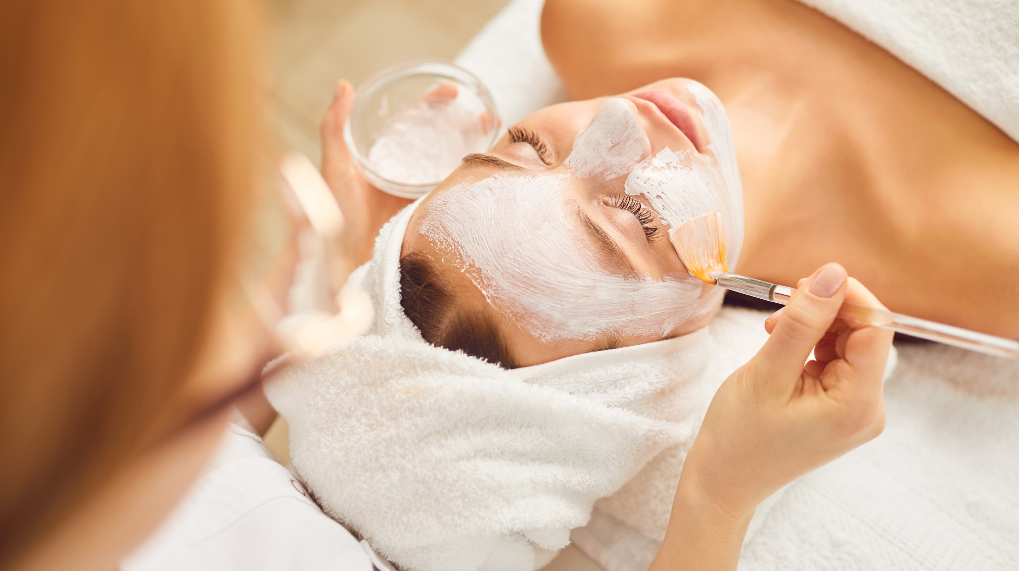Is Chemical Peel Good For Your Face?
In the ever-evolving world of skincare, chemical peels have gained immense popularity for their promise of smoother, clearer, and more youthful-looking skin. But with all the buzz surrounding this treatment, many people still wonder: Is a chemical peel actually good for your face? Like most cosmetic procedures, the answer depends on your skin type, concerns, and the expertise of the professional performing it.
This blog will explore the benefits, types, risks, and considerations of chemical peels, helping you make an informed decision on whether it’s the right treatment for your skin.
What is a Chemical Peel?
A chemical peel is a skin-resurfacing procedure in which a chemical solution is applied to the skin to exfoliate and eventually peel off the top layers. The regenerated skin underneath is typically smoother, less wrinkled, and more even in tone and texture.
Chemical peels are used to treat a variety of skin concerns, including:
- Acne and acne scars
- Fine lines and wrinkles
- Hyperpigmentation and melasma
- Uneven skin tone or texture
- Sun damage
- Enlarged pores
The depth of a peel—superficial, medium, or deep—determines how aggressively the skin is treated and how long the recovery time will be.
Types of Chemical Peels
- Superficial Peel:
Also known as a light peel, this type uses mild acids like alpha-hydroxy acid (AHA) to gently exfoliate only the outermost layer of skin. It’s often used for mild discoloration and rough skin, requiring little to no downtime. - Medium Peel:
Typically uses trichloroacetic acid (TCA) to penetrate the middle layers of skin. It is effective for treating age spots, fine lines, and acne scars. Recovery may take up to a week. - Deep Peel:
Using stronger acids like phenol, deep peels penetrate the deeper dermal layers. They offer dramatic results but come with more significant downtime and require more careful aftercare.
Benefits of Chemical Peels
1. Improved Skin Texture and Tone
Peels effectively remove the top layer of dull, dead skin, revealing fresh and radiant skin beneath. This leads to improved texture, enhanced glow, and smoother skin.
2. Reduction in Acne and Blemishes
Certain peels can help unclog pores, reduce oil production, and prevent acne breakouts. They can also help fade post-acne marks and scars over time.
3. Anti-Aging Effects
Chemical peels stimulate collagen production and help reduce the appearance of fine lines and wrinkles, especially around the eyes and mouth.
4. Lightened Pigmentation and Sunspots
Peels can significantly improve sun-damaged skin and help lighten areas affected by hyperpigmentation or melasma.
5. Boost in Confidence
Clearer, brighter, and younger-looking skin often leads to improved self-esteem and confidence.
Are Chemical Peels Safe for Everyone?
Chemical peels are generally safe when performed by trained professionals, but they’re not for everyone. Individuals with certain conditions or sensitivities should avoid them.
You may not be a suitable candidate if you:
- Have active skin infections or conditions like eczema or psoriasis
- Are pregnant or breastfeeding
- Have a history of keloids or abnormal scarring
- Use medications like isotretinoin (Accutane)
- Have recently undergone radiation or laser therapy
A thorough consultation with a qualified dermatologist is essential to assess your skin type, concerns, and suitability for the procedure.
Risks and Side Effects
While chemical peels are effective, they do carry potential side effects, especially when not administered correctly. These may include:
- Redness and irritation
- Swelling and crusting
- Temporary or permanent changes in skin color
- Scarring
- Reactivation of cold sores
Proper aftercare and sun protection are crucial to minimize risks and promote healthy healing.
How to Prepare for a Chemical Peel
- Consult a Dermatologist: They will evaluate your skin and recommend the appropriate type and depth of peel.
- Avoid Retinoids and Exfoliants: Discontinue use of certain skincare products days before the procedure to prevent irritation.
- Use Sunscreen: Begin applying broad-spectrum sunscreen to protect the skin and reduce the risk of post-peel pigmentation.
- Avoid Waxing or Hair Removal Treatments: These can irritate the skin and should be avoided for at least a week before the peel.
Post-Peel Care Tips
Proper care after your chemical peel is vital for optimal results and avoiding complications.
- Hydrate and moisturize regularly
- Avoid sun exposure and always wear SPF
- Do not pick or peel flaking skin
- Use gentle, non-irritating skincare products
- Follow up with your dermatologist if any unusual symptoms arise
Depending on the type of peel, the results can be seen in as little as one session or may require a series of treatments for full effectiveness.
Conclusion
So, is a chemical peel good for your face? Yes—when done correctly, chemical peels can be a game-changer for skin rejuvenation. They offer a powerful solution for a range of skin issues, from fine lines and acne scars to sun damage and dullness. However, it’s essential to consult with a professional who can guide you toward the most suitable peel for your skin type and concerns.If you’re considering a chemical peel and want expert guidance tailored to your specific needs, consulting a qualified dermatologist in Dubai can make all the difference. Their expertise ensures a safe, effective, and personalized skincare journey for radiant, healthier-looking skin.

